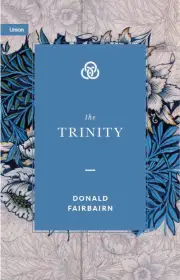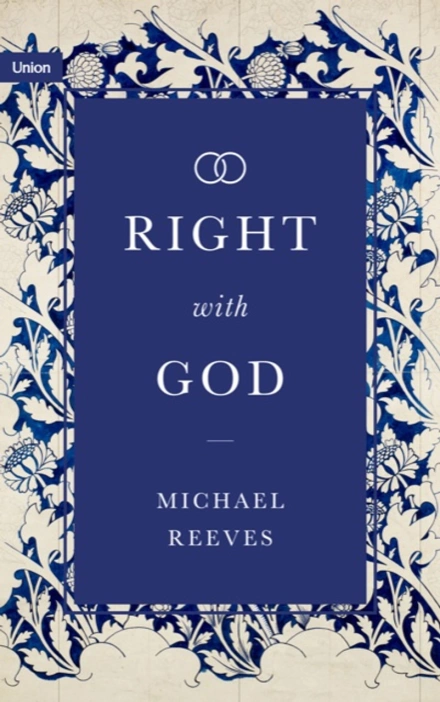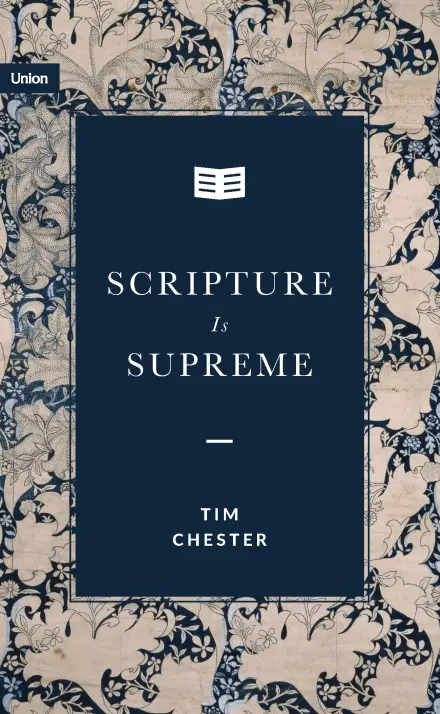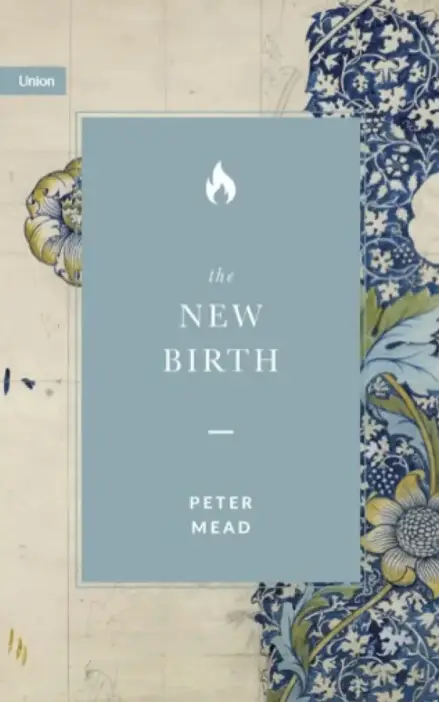Highly recommended. Helpful for all Christians, from beginners to senior saints.
A Layman's Review
TLDR 5 of 5 stars. "Highly recommended. Helpful for all Christians, from beginners to senior saints. Your love for and understanding of our glorious Triune God will increase by reading this book."
Summary review
The Trinity is a superbly helpful book. It is written with great care using everyday language appropriate for Christians at all levels of understanding. Author Fairbairn has geared this book especially for those who have not studied the Trinity or who have questions and concerns about the relevance of the Trinity for their everyday lives. This pointed effort to elevate love for our great God among evangelicals (generally considered) springs from a life deeply rooted in theologically informed love for God. It is fair to say that Dr. Fairbairn writes out of his own love for God in order to grow love for the Father, the Son, and the Holy Spirit. This book aims to increase love for God across the Christian family of believers. Happily, the book succeeds in hitting the target.
Dr. Fairbairn follows the pattern of Scripture in this book. As the Bible introduces God, His Son, and His Holy Spirit at key points, Fairbairn focuses on six key beginnings and how each of them reveal the Trinity. The doctrine of the Trinity has seen a revival of scholarly attention among evangelicals in recent years. Most of that work is academic, detailed, and loaded with necessary technical terms. I am happy to see the energy being spent on these careful explorations, but they are not introductory nor are they likely to be the first volume a Christian will choose to ground their understanding of the Trinity. Fairbairn has produced an introductory book by articulating the Trinity in plain language yet with great care, resulting in a volume which is both helpful and accessible by all Christians.
The Longer Review
• Introducing the Essentials series
• This book's place in the Essentials series
• The Author
• The audience.
• Overall strengths
o How Fairbairn approaches the Trinity
o Vocabulary
• Special features
• Key quotations
• Supplemental material
• Areas of concern
Introducing the Essentials series
The Christian faith is a Trinitarian faith. Every Christian denomination has, at its core, authentic worship of the Triune God. The testimony of historic Christian creeds and confessions is unanimous - God has made himself known in biblical revelation as the Trinity, namely one God in three persons. Indeed, every Christian church professes the Trinity as crucial. Christians down through the ages have believed in and loved the Trinity.
Why does the doctrine of the Triune God dominate the landscape of Christian denominations, churches, and individuals? Because the Trinity is the core revelation of God presented in the Bible. God is the gravity well of biblical revelation. Everything Christians believe and do is drawn from, fed by, and points to the Trinity. The goal of our faith is fully restored fellowship with the Father, the Son, and the Holy Spirit throughout all eternity. To put it succinctly, the Trinity is essential to being a Christian. Our highest hope is that we will be restored in loving fellowship with our Creator, in His very presence for eternity and in joy as we worship Him.
The Essentials series, published by Union Publishing, is a collection of ten short books on the basics of the Christian faith. The series is designed to clarify, instruct, and invigorate disciples in the Christian gospel.
Volumes in the Essentials series are designed as short books to be read by Christians at large. As such, they are written at a basic level without sacrificing either clarity or depth. They will help move their readers to a clearer understanding of the Christian faith. The underpinnings of each volume are academically rigorous without intruding advanced vocabulary or loaded language into the body of the text.
It is my sincere desire that they win a wide readership. This will help many dear souls in their pilgrimage. Some disciples may very well be moved to extended reading and reflection, with some ultimately pursuing academic training at the highest levels.
This book's place in the Essentials series
The Trinity stands at the center of the Essentials series. This reflects the biblical image of the Triune God pictured at the center of worship of all creation throughout the Scriptures. As subsequent volumes in the series are explored, their inter-relatedness and reliance upon the Father, the Son, and the Holy Spirit will become apparent through attentive reading.
The Author
Donald Fairbairn is Professor of Historical and Systematic Theology at Union School of Theology and Robert E. Cooley Professor of Early Christianity at Gordon-Conwell Theological Seminary. Dr. Fairbairn has written several important works, including language tools, creeds and confessions, the church fathers, and history of the early church. He has ministry experience in many contexts and is deeply skilled in adapting complex topics to non-academic audiences. Additionally, his academic work in historical theology, church history, and systematic theology gives him a well-formed and mature perspective on theological pressures and how those pressures impact the interpretive process. He is well-suited to author the core study of the Essentials series.
The Audience
The Trinity, and the entire Essentials series, is written with an audience in mind. It is not an academic audience, stuffed away in the loftiest heights of prestigious seminaries. It is the grocer, the baker, the farmer, the housewife, the mother, the laborer, the retiree of evangelical religion. It is intended to be readable by a broad swath of Christians, setting their convictions deep in the gospel, widening the use of their gifted graces among all peoples, fueling their service to God and man through the provocation of hope which ultimately rests upon the Father, the Son, and the Spirit.
Overall Strengths
As an introduction to the Trinity, the author sets out to explain who God is by following the path found in Scripture. This approach is powerful. To teach as Scripture teaches is to set the reader on the path of faith leading to gates of splendor. To utilize the pattern which Scripture uses is to help the reader build a strong and solid foundation, adding insights and wisdom drawn directly from the Word of God.
Using this approach of biblical theology simplifies the tasks of teaching and learning. It introduces ideas organically rather than constructing a deeply complex introduction which requires far more specialized language and a longer runway to form, understand, and embrace learned terminology. In other words, start at the beginning and walk the path of learning as set out in Scripture.
There has been a resurgence of interest among evangelicals concerning the Trinity. For the last ten to twenty years, detailed explorations of the Trinity have been on the increase. Many of them are incredibly helpful in their historical, philosophical, and systematic maturity. I do not deny the need for intellectual rigor and care in expressing the profound depths of the being of God. I do ask if we can create truly introductory works accessible by the typical Christian disciple? After reading this book, I can confirm that we can create such works. I pray that the Lord will bless the impact of this little volume, as well as the entire Essentials series, to the benefit of Christians everywhere.
Special Features
Fairbairn walks the reader through the organic revelation of the Trinity across six beginnings.
• Back to the Beginning
• The Beginning of Everything
• "Before" the Beginning
• The Beginning of the Gospel
• The Beginning of Life
• The Beginning at the End
Across these points, the author surfaces the Trinity as it appears in each beginning. Fairbairn is careful to keep in line with what we might call "partial revealings" very early in Genesis. His exploration is linked to the canon and highlights how the "Living God" differs from all other so-called gods known in the world at that time. He continues opening our view as we move further into the canon, while continuing to maintain his patience with the text of Scripture. What an incredibly helpful approach! Instead of extending our systematics at the outset, the author allows the Bible to expand this revelation at a pace which the text dictates. He provides pointed insights and questions at key junctures, and helps the reader follow how the text is both surprising and consistent in what it declares to us about our Creator.
The organizing principle of beginnings which Fairbairn utilizes allows the learning disciple to mull over what the Bible is saying in each beginning. Instead of writing an efficient intro to the Trinity, the author has crafted a patient intro which moves as Scripture moves. As I see it, roots take time to grow deeply and keep us anchored. I understand the idea of efficiency and even the desire to be efficient. Yet in topics such as the being of our Creator, time for thought, consideration, and reflection is time well spent.
It is my great hope that you, reader, will give this little volume your attention and reflection in the coming days and weeks. As one journeying the path of faith alongside you, proceeding at a thoughtful pace reaps far more reward than repeated sprints gapped by gasping for air. As we walk together with Dr. Fairbairn along the path, stop and breathe deeply of fresh Scriptural mountain air.
Sample Quotations
I'll provide a few snippets to whet your appetite.
"The gospel begins with the Trinity, and it centres around the Trinity - around the eternal love between the Father and the Son, a love that God shares with us when he sends his Son into the world, and when he sends his Spirit into our hearts." - p.51
"In the Essentials series, of which this book is a part, we discuss many aspects of the gospel. But at the beginning of the gospel, and at its very heart, is a simple truth: God sent his Son, who took upon himself not only our humanity but our brokenness, our alienation, our lostness. On the cross he died the death we face. And yet God raised him up from the dead, taking him back into fellowship with himself, so that we too - we who are alienated from God for our own faithlessness - may also be received back in him." - p.61
"This is life - new life, spiritual life, life from above. And it begins with the work of the Spirit to unite us to Christ and thus to his Father, God. New life begins with the Trinity." - p.71
Areas of concern
I would like to offer a thought in reply to concerns expressed by other reviewers. Some have suggested that this work is insufficient as an introductory work because it does not use loaded language found in works which are more academic in nature. I simply offer that when your commitments as a reader are so deeply embedded in specific technical language that you find fault with simple biblical expression offered in plain language, you would do well to re-examine your tribal commitments. To speak as Scripture speaks is not problematic for an introductory work. Indeed, it is a blessing to display clearly the connection of the Trinity with everyday Christian life.
Dave
Good but Flawed
I liked much about this book, but also have significant reservations. I would not recommend it to a friend.
The book has three great strengths. First, it is amazingly clear and simple, yet without sacrificing theological depth. Second, the book is heavily Scripture-based: a passage or two are presented in each chapter, and by the end of the chapter, the reader can see that only the doctrine of the Trinity is a good explanation of the passages. Third, the book connects the eternal sonship of the Son with the spiritual adoption of believers - a very biblical, comforting, and glorious connection which is too seldom made for folks in the pews. I was very happy to see it.
However, the book also has a weakness which, for me, knocked it down from four or five stars to three: at some points, it presents a picture of the Trinity which is more social than Nicene. For example, on page 40 Fairbairn says:
"And although the Bible doesn't say so directly, we can guess that the Holy Spirit also shared with the Father and the Son in unity, glory, and love "before" the foundation of the world."
And on page 42, "Again, we can assume the same reasoning applies to the Holy Spirit as well; he is a distinct person who shares genuine love with the Father and the Son."
In both quotes, in absence of biblical support, the Fairbairn implies that love is shared between the Father and the Spirit in the same way that it is shared between the Father and the Son. Probably, many readers will assume from this that there simply isn't any biblical data on the relationship between the Spirit and intra-trinitarian love. However, this is not the case: biblically, it is better to say that the Spirit is himself the love between the Father and the Son, or is at least the conduit of this love (see Jesus' baptism, for example). Presumably, the reasoning used in the book stems from the fact that Fairbairn doesn't define the persons according to their eternal relations of origin (the begottenness of the Son and spiration of the Spirit), but according to social relationships with one another.
And, this is probably connected to the fact that Fairbairn locates the unity of God's being in the social unity of the persons. He does this on pages 40-41 in an uncharacteristically confusing and illogical paragraph, which essentially argues that if the persons agree all the time, they must actually be one God - tell that to my LDS friends! And it is probably on this basis that he then uses the relationship between the Father and the Son as the social basis for relationships within the church - a move which I do not believe is supported by either Scripture or sound theology.
All that to say, I picked up the book expecting a biblical and Nicene Trinity. And in some ways, it delivered quite well (e.g., inseparable operations, pg. 53). But in other ways, it was disappointing - and all the more so because of how well it is written and how clearly it is argued. So, hats off to Fairbairn for a generally good book... but I'm still looking for the perfect book on the Trinity to hand to folks in the pews.
Ezra






























